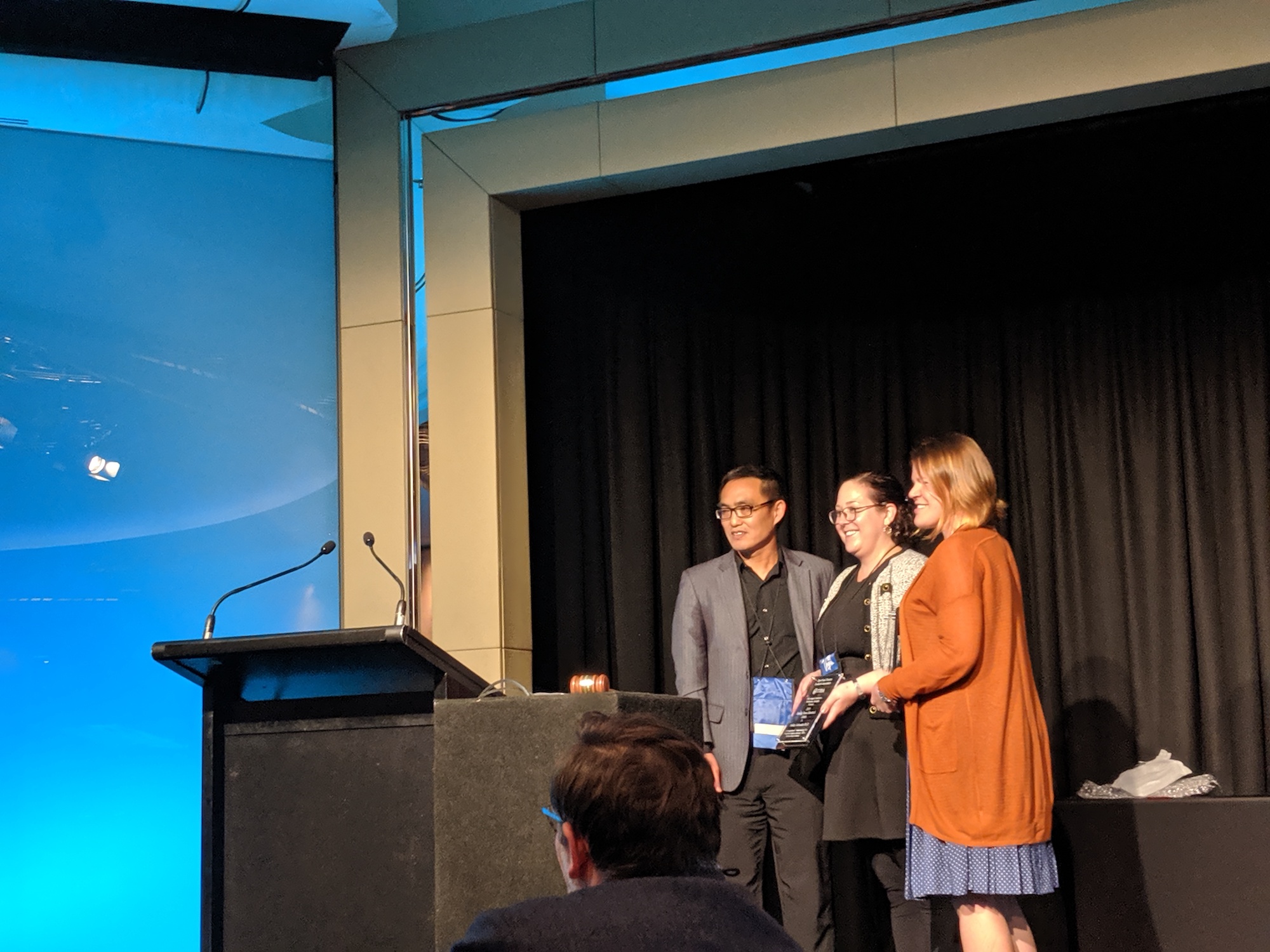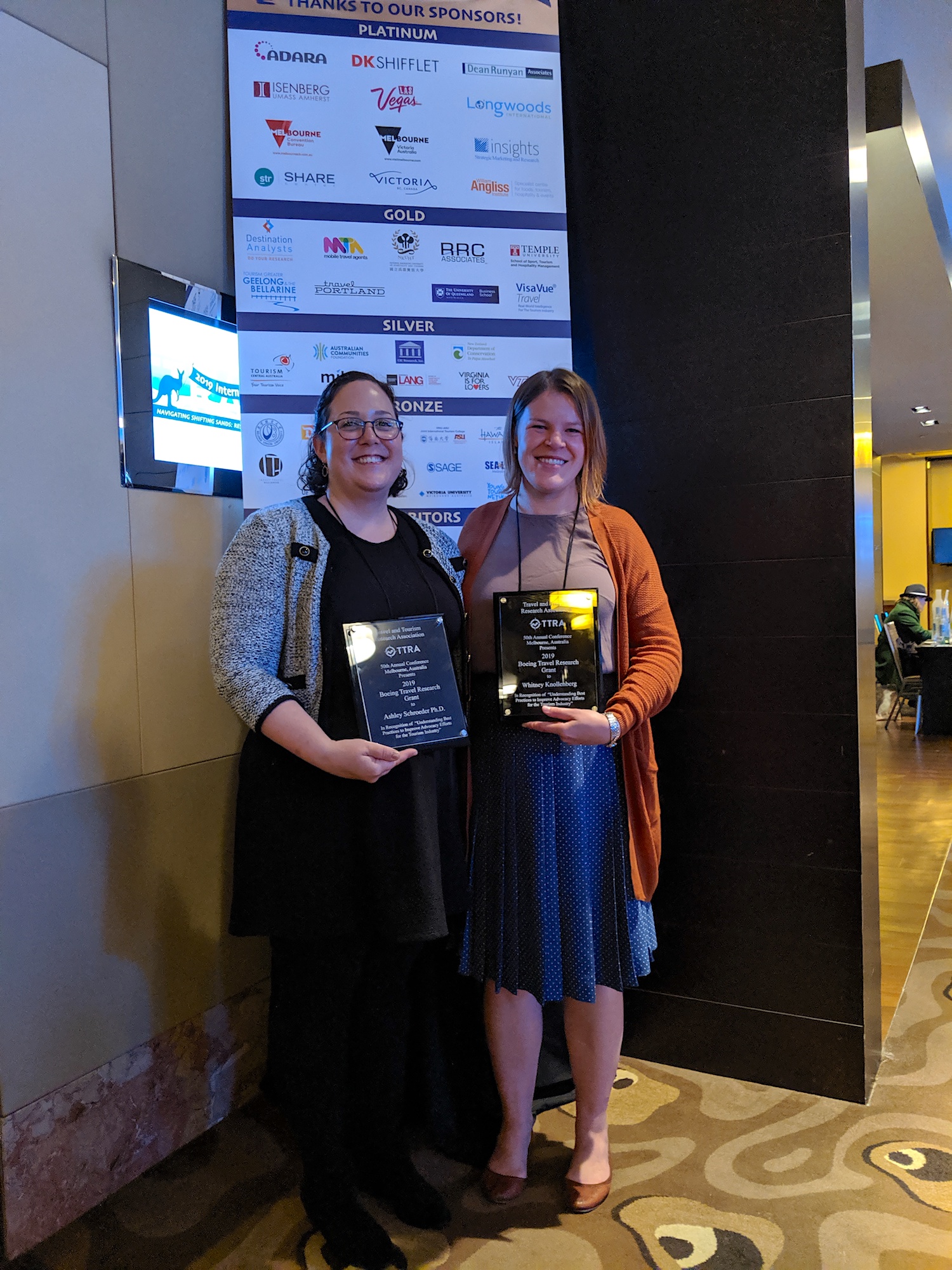Fortifying the Tourism Industry Through Advocacy: NCSU’s Whitney Knollenberg Has a Plan
go.ncsu.edu/readext?609508
en Español / em Português
El inglés es el idioma de control de esta página. En la medida en que haya algún conflicto entre la traducción al inglés y la traducción, el inglés prevalece.
Al hacer clic en el enlace de traducción se activa un servicio de traducción gratuito para convertir la página al español. Al igual que con cualquier traducción por Internet, la conversión no es sensible al contexto y puede que no traduzca el texto en su significado original. NC State Extension no garantiza la exactitud del texto traducido. Por favor, tenga en cuenta que algunas aplicaciones y/o servicios pueden no funcionar como se espera cuando se traducen.
Português
Inglês é o idioma de controle desta página. Na medida que haja algum conflito entre o texto original em Inglês e a tradução, o Inglês prevalece.
Ao clicar no link de tradução, um serviço gratuito de tradução será ativado para converter a página para o Português. Como em qualquer tradução pela internet, a conversão não é sensivel ao contexto e pode não ocorrer a tradução para o significado orginal. O serviço de Extensão da Carolina do Norte (NC State Extension) não garante a exatidão do texto traduzido. Por favor, observe que algumas funções ou serviços podem não funcionar como esperado após a tradução.
English
English is the controlling language of this page. To the extent there is any conflict between the English text and the translation, English controls.
Clicking on the translation link activates a free translation service to convert the page to Spanish. As with any Internet translation, the conversion is not context-sensitive and may not translate the text to its original meaning. NC State Extension does not guarantee the accuracy of the translated text. Please note that some applications and/or services may not function as expected when translated.
Collapse ▲The tourism industry faces a fair share of threats, such as hurricanes and climate-related impacts, which can harm tourism providers and the communities whose economies rely on tourism. Intangible, but hugely impactful, forces such as policy change can also cause crises for the tourism industry. Parks, Recreation, and Tourism Management Assistant Professor Dr. Whitney Knollenberg (NC State) in collaboration with Dr. Ashley Schroeder (Assistant Professor, Penn State) seek to determine best practices to address political crises the tourism industry faces.
Political crises for the tourism industry can result from policy decisions at local, state, and federal levels. For example, the recent government closure devastated national parks, while their gateway communities saw a decrease in visitation. More locally, the House Bill 2 in North Carolina – a policy that would require individuals to use restrooms based on the sex listed on their birth certificates – caused negative perceptions of North Carolina for some visitors, resulting in travel bans and cancelled trips to the state.

Dr. Whitney Knollenberg and Dr. Ashely Schroeder (Penn State University) (center) received the Boeing Travel Research grant to support their proposal “Understanding Best Practices to Improve Advocacy Efforts for the Tourism Industry”. Dr. Bing Pan (Penn State) (left) presented the award. Photo courtesy of W. Knollenberg.
Minimizing the negative impacts of policy decisions requires advocacy efforts by tourism industry leaders. These advocates educate decision-makers on the various impacts of a decision. For the tourism industry, advocacy can be a challenging field to navigate. For one, stakeholders in tourism do not always share the same values and stances on issues, leading to a weaker unified voice. Moreover, many tourism associations are limited in their abilities to advocate because they are funded by public sources.
Knollenberg and Schroeder’s proposed work aims to discover “how tourism associations engage in advocacy planning, who is involved in these planning efforts, what resources associations utilize when planning for advocacy efforts, and what resources are needed to improve their planning efforts.” Interviews and surveys with tourism association leaders will answer these questions, determining what motivates and sustains effective advocacy efforts despite the challenges.

Dr. Ashley Schroeder (left) and Dr. Whitney Knollenberg. Photo courtesy of W. Knollengberg.
Knollenberg’s research interests surround leadership in planning, policy, and partnerships that fosters sustainable tourism development. Her expertise aligns well with Schroeder’s who studies crisis reduction, readiness, response, and recovery in tourism communities. Friends and colleagues since attended their first conference together in 2012, the two will travel to Melbourne, Australia to receive the Boeing Travel Research Grant at the 50th annual conference of the Travel and Tourism Research Association (June 24-27), which will fund their proposed work.


